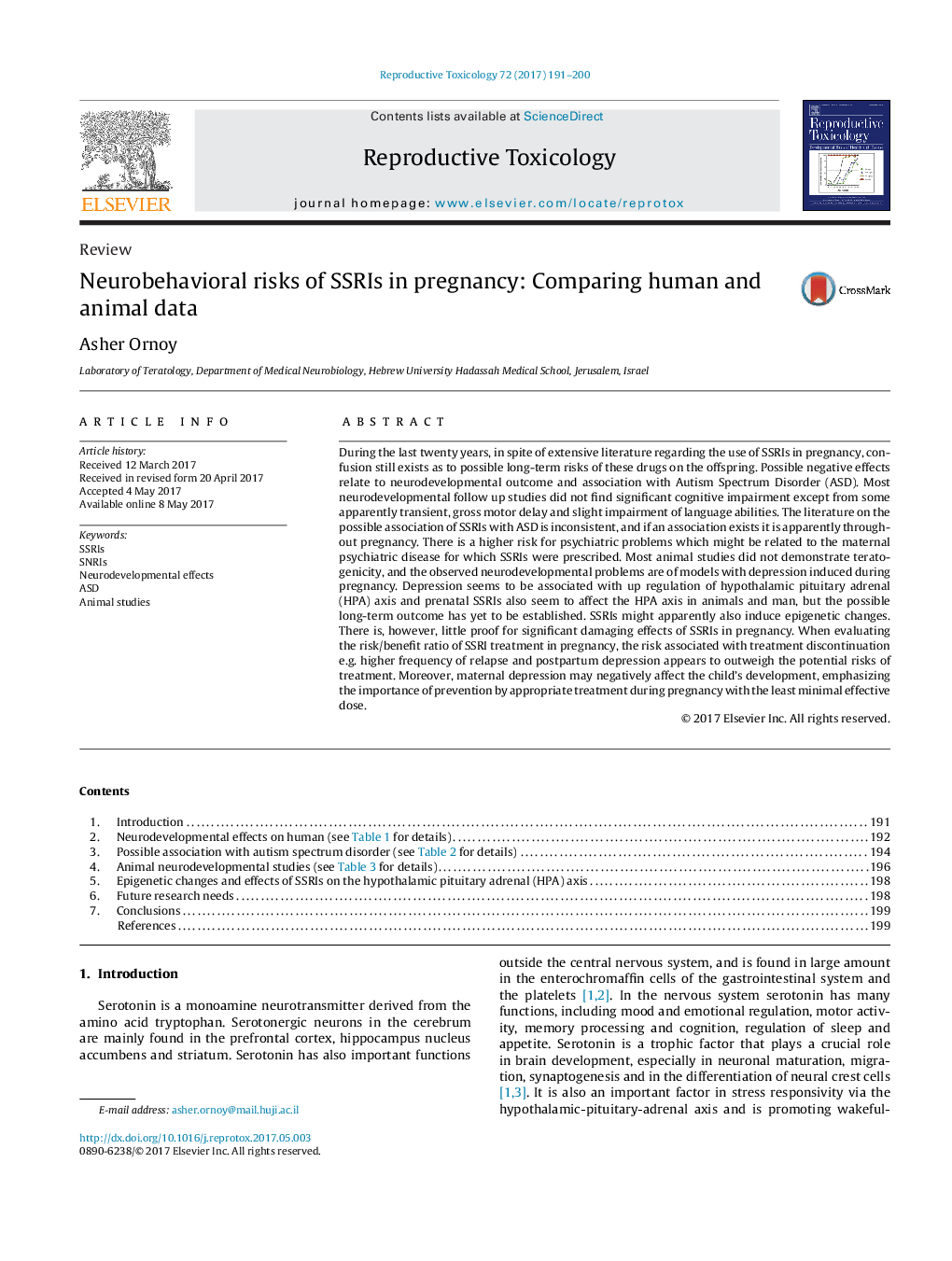| کد مقاله | کد نشریه | سال انتشار | مقاله انگلیسی | نسخه تمام متن |
|---|---|---|---|---|
| 5561555 | 1562147 | 2017 | 10 صفحه PDF | دانلود رایگان |

- Sertonin plays an important role in embryonic development, especially of the nervous system
- SSRIs may modify serotonergic metabolism in the developing embryo and fetus
- Animal and human data does not seem to support SSRIs teratogenicity or significant negative neurodevelopmental effects.
- Women that are on SSRI treatment do not need to discontinue the drugs while pregnant.
- The theoretical possibility for negative effects on the developing embroy/fetus should be explained to the treated woman while planning pregnancy.
During the last twenty years, in spite of extensive literature regarding the use of SSRIs in pregnancy, confusion still exists as to possible long-term risks of these drugs on the offspring. Possible negative effects relate to neurodevelopmental outcome and association with Autism Spectrum Disorder (ASD). Most neurodevelopmental follow up studies did not find significant cognitive impairment except from some apparently transient, gross motor delay and slight impairment of language abilities. The literature on the possible association of SSRIs with ASD is inconsistent, and if an association exists it is apparently throughout pregnancy. There is a higher risk for psychiatric problems which might be related to the maternal psychiatric disease for which SSRIs were prescribed. Most animal studies did not demonstrate teratogenicity, and the observed neurodevelopmental problems are of models with depression induced during pregnancy. Depression seems to be associated with up regulation of hypothalamic pituitary adrenal (HPA) axis and prenatal SSRIs also seem to affect the HPA axis in animals and man, but the possible long-term outcome has yet to be established. SSRIs might apparently also induce epigenetic changes. There is, however, little proof for significant damaging effects of SSRIs in pregnancy. When evaluating the risk/benefit ratio of SSRI treatment in pregnancy, the risk associated with treatment discontinuation e.g. higher frequency of relapse and postpartum depression appears to outweigh the potential risks of treatment. Moreover, maternal depression may negatively affect the child's development, emphasizing the importance of prevention by appropriate treatment during pregnancy with the least minimal effective dose.
Journal: Reproductive Toxicology - Volume 72, September 2017, Pages 191-200